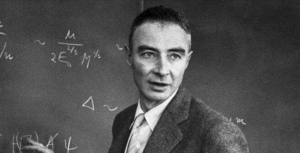By Black Economics
Photos: YouTube Screenshots\Wikimedia Commons
One of our most vivid memories of early elementary school is being pleasantly exuberant about having crayon colored a map of the African Continent, only to be told that the effort was subpar because there was “coloring outside the lines.” At a later point, there was a seemingly applauding comment by a teacher’s assessment of academic performance on a six-week report card, which stated that “he colors within the lines.” Was real learning occurring?

Should any student be castigated (if ever so gently) or applauded for coloring outside or within the lines, respectively? Wise ones will remind us that the purpose of “education” is to capture “problem solving skills.” By their very nature, problems that require solving are outside the norm, otherwise they would not be problems. Solutions to problems require the application of existing knowledge and methods in new/different ways, or the identification or “invention” of new knowledges and methods. Science and the scientific method fundamentally entail exploring new, unchartered territory. If chartered territory is circumscribed by “lines,” then new or unchartered territory means space outside the lines, which means that one must go outside existing lines to explore.
Have we been “doing education wrong all along?”
Which brings us to Oppenheimer, the 2023 blockbuster movie.[1] We are only writing about the movie now because, we endeavor to: “Treat spending as personal protests or economic warfare-related actions.”[2] Consequently, we waited until the cost of viewing the movie was just a few pennies. In any event, it can serve as an extremely insightful cinematic production for Black Americans—Black economists in particular.

For Black Americans, it conveys the magnitude of our challenges ahead if we want to operate as persistent, important, and impactful contributors to global events and outcomes again. The movie features a physicist, J. Robert Oppenheimer, and his colleagues solving the most complex problem of its time. He innovates and orchestrates evolution of the solution effortlessly while outsmarting a conventional US military. He spends an unheard of two billion dollars on a scientific research project. He crisscrosses the nation at will for business and pleasure. He enjoys the pleasures of life
including intellectual stimulation, wonderfully delicious food, fatherhood and family, and a torrid love affair. After all is said and done, Oppenheimer is boldly proclaimed the most important person in the world.
Let us leave aside for now whether a World War II peace could have been negotiated amicably without opening pandora’s box of mutually assured destruction and setting the world’s atmosphere on fire forever. Also, let us not consider whether the cost of such peace would have been far less than two billion dollars. Finally, let us ignore whether the scientists involved in solving the problem had mixed emotions, were torn, or were contorted about the hell that they birthed for the world.

Let us focus on, and not miss, the following Oppenheimer messages:[3]
1. There was only one primary and small group that brought this hell into existence.
2. While Oppenheimer is featured as the leader of this small group that solved the problem, his antecedent to whom he deferred alone and who identified a path to the door of that hell, was also a member of that small group. He was a world-renowned scientist, and a Nobel Prize winner no less.
3. That small group almost single-handedly embodied the knowledges and skills required to solve the problem.
4. The small group could have and may have shielded and protected those knowledges and skills from others throughout the solution-finding process for more than just “security” purposes.
5. The small group comprehended well the short- and long-term gravity of their research. Yet they went forward with it without demanding vociferously that parallel research efforts go forward that
explored the potential alternative routes to peace alluded to above.
It did not hurt that the small group had as part of its cultural capital the idea that they were of a “chosen people” of the universal creator. Such a self-concept is empowering to the point of infinite possibilities.
Little-to-none of the foregoing observations are stated explicitly in the movie. Yet they are all there in plain sight to enter our conscious or subconscious minds. They were seemingly designed to place us in great awe of this small group.

Importantly, having seen and heard Oppenheimer, any logical mind in its conscious or unconscious state will conclude: Given those knowledges and skills, and comprehending human nature, it was and is logical that the small group could have reserved certain aspects of the solution as a secret for themselves alone. Then given our broader knowledge of important aspects of the global society and industry, we may quietly think to ourselves: This small group commands similar supreme knowledges and skills in other critical fields and industries all over the world.[4]
Is this paranoia, conspiratorial, or plain and simple truths?
Then the bell rings and the thought flashes: This supreme knowledge and skill means that this small group likely holds many keys to smooth global functioning and survival. And then we pose culminating questions: “Does this small group’s possession of this supreme knowledge enable it to keep the entire world in check—including the US? Is it because of this supreme knowledge that the small group can call its own tune on the world stage, while all the time claiming to be very undersized on seemingly all important fronts (e.g., population, economy, military, etc.)?
Now that we have clarified the important messages from Oppenheimer, at least from our perspective, we turn to Black America—Black economists in particular. We claim our heritage as Afrodescendants and our lineage to the greatest civilizations on Earth.[5] This claim brings with it the following realizations: (i) Our minds are as powerful as any others; (ii) our minds will not grow
optimally and will not permit fulfillment of our potential unless they are stretched; (iii) remaining dependent and in servitude to others is not the best environment for stretching and growing our minds.

Therefore, if we are serious about reclaiming our rightful place in the world as a People, then we should make every effort to seize our liberty (physical and mental) and act to create an independent and self-sustaining environment where our minds will be able to grow optimally and resume displaying their inherent and superb qualities.
Black economists should consider discontinuing the use of valuable brain, time, material, and financial resources to confirm repeatedly the existence of “racial discrimination” in all aspects of global
society—something that is obvious to even the casually trained naked eye? Why not use those valuable resources to pursue identification, development, and to reserve for ourselves new economic ideas, concepts, principles, and even activities and industries that will have great global socioeconomic value and import for the future? Such an outcome would parallel conditions prevailing
for Oppenheimer and his small group of scientists who shook up the world.
And even if we decide to be different and open handed with new knowledge that we identify or produce to ensure optimal well-being for all humans on the planet, Black economists should begin now to color outside the lines.
Dr. Brooks Robinson is the founder of the Black Economics.org website.
References:
[1] From July 2023 until May 2024, Oppenheimer garnered nearly $1.0 billion in sales receipts.
[2] Brooks Robinson (2024). Merida Musings. BlackEconomics.org. Honolulu. p. 40.
[3] One readily available source concerning the composition of Manhattan Project leadership is Abigail Beus (2023), “Jewish Contribution to the Manhattan Project,” Intermountain Histories.org.
[4] Given the historical diaspora of this small group, remnants remain all around the world to this very day.
[5] We say “greatest” because ancient African people and civilizations invented all fundamental building blocks that enabled our current state. Today’s destructive power highlighted in Oppenheimer and even more recent technological “advancements” could not have occurred without the foundational contributions of ancient African Civilizations and its scientists. When considering this topic, a question worth asking is: “Is orderly and purposeful discovery and creation far more important to life than the discovery of the raw power to destroy?







